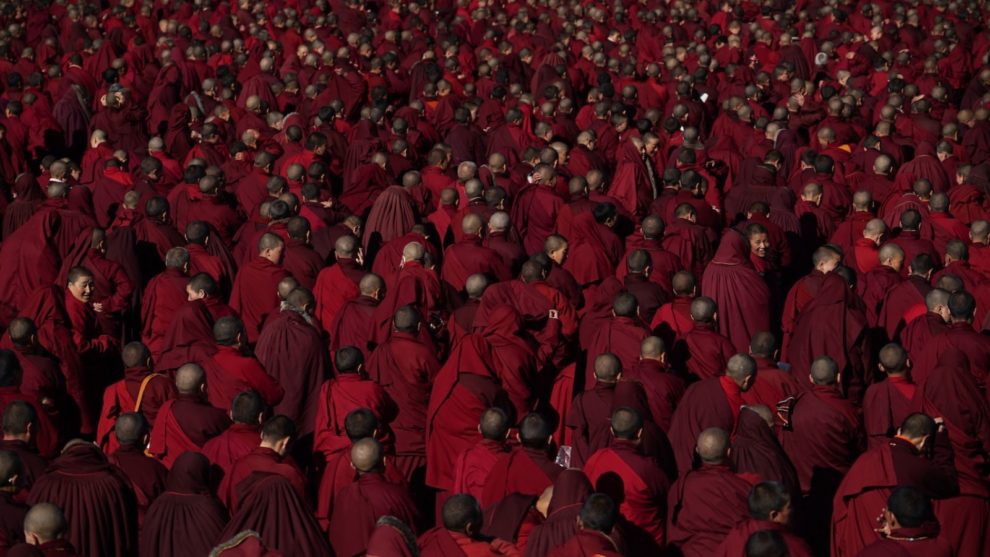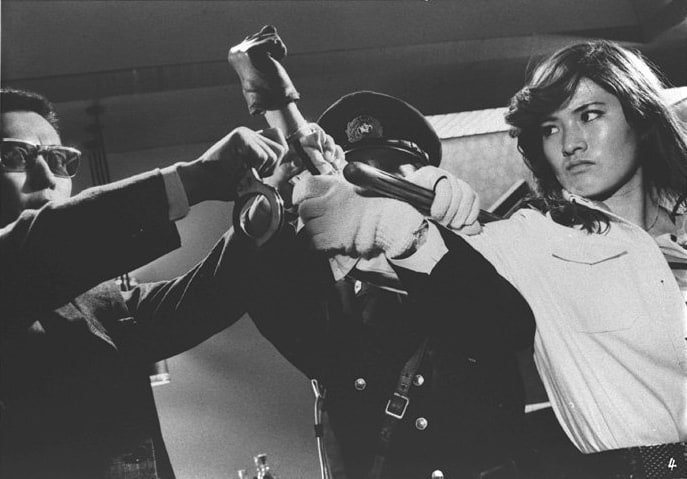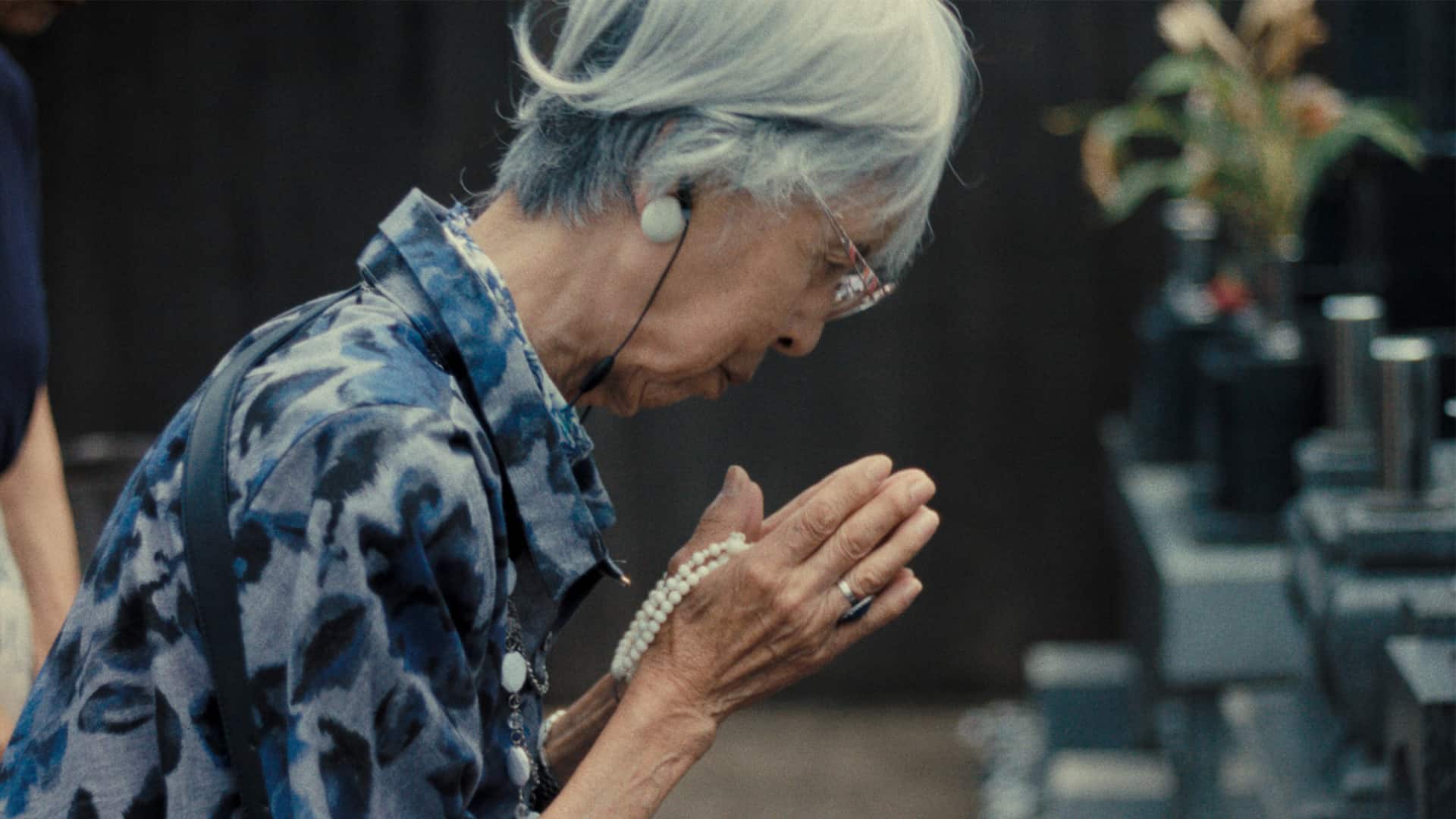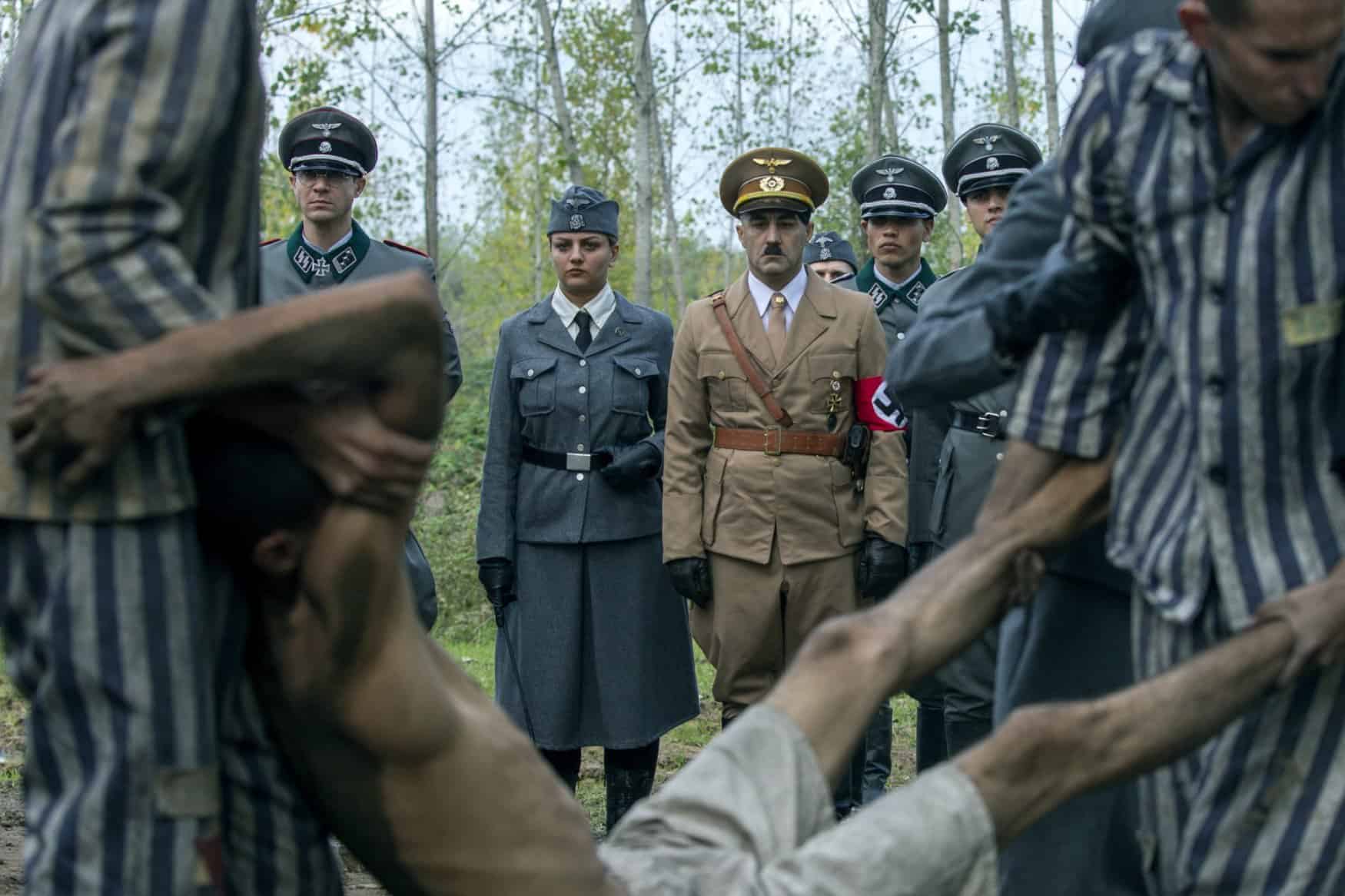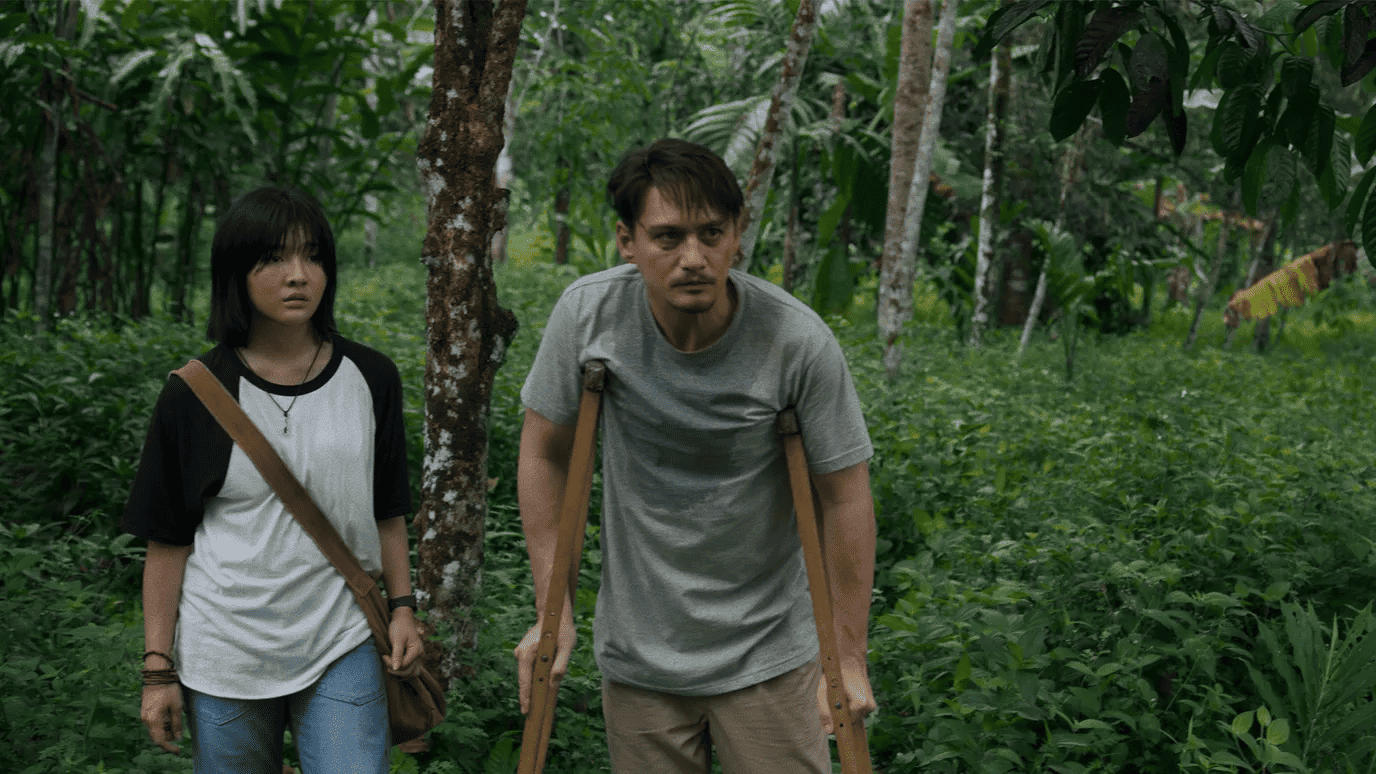“Dark Red Forest” was shot at the biggest Tibetan Buddhism monastery in China, Yarchen, in the span of a year, documenting the different aspects of the nuns' yearly routine. As the movie opens, we see them prepare for a hundred day winter retreat, which many of them spend in specially made micro huts. The freezing cold weather, coupled with the thinness of their shacks' walls is juxtaposed with the quiet fervor of their practice. We then see them participate in a six-month-long sutra study, followed by a brief summer respite in which some do prostrations, while the younger members of the community dance, waiting and preparing for another arduous winter retreat.

As varied as the life within this monastery town is, there is a single constant in their yearly cycle – death. From the first minutes of the documentary until its closing scene, we are constantly reminded of it, often through direct and, frankly, rather brutal shots of the Tibetan sky burial. We are reminded of it also indirectly, by nuns breaking their dead sisters' shacks or by the vultures who are never too far away from the grounds of the sprawling monastery. But most of all, we are reminded of death through some of the faces in the sea of nuns. Many of them look tired, sick, or both. None of them exhibits sadness or resignation, even in the difficult conditions they live in.
Jin Huaqing chooses to forego two of the mainstays of documentary filmmaking, the interview and focusing on a main subject, and instead adopts a much more observational approach in which his camera jumps from a subject to another, watching each nun carry different tasks such as cooking and studying to visiting the doctor and getting dharma lectures by a monk sitting offscreen. A reason for the decision to follow numerous people as opposed to one might have been the nuns themselves, who might have not wanted to be followed by a camera for long periods of time and have their practice hindered or possibly something else. We are never told and it doesn't matter because it works for a great advantage of the film, showing us the communal aspect of the nuns' lives. After all, they are all in the monastery complex striving to penetrate the Buddha's teachings and transcend the ego and the egocentric view of the world. And what more egocentric is there than having oneself be the focus of an entire movie?
Visually, “Dark Red Forest” also seems to favor the community experience instead of the individual one. Time and again we see seas of ochre-clothed nuns walking slowly and attentively towards a single destination, be it the monastery or the grounds around it. We are also shown many landscape shots of forests of robes in surrounded by some of the most breathtaking backgrounds in recent memory.It is as if the nuns and the nature are indistinguishable, living in perfect unison. This scenery is sometimes punctuated with closeups that give us meaningful detail, a nun studying, a novice reciting, another one eating. The micro and the macro meld to create a poetic depiction of spiritual strive.
For the majority of its runtime, the documentary omits one of the most crucial details about the monastery complex, the fact that it is located in China and as such, it is a subject to the regime's politics. In fact, the movie creates the false impression that the monastery town is not part of the state and is self-regulating. Sadly, in the last half an hour or so, through shots of Chinese propaganda banners, we learn that it is not and the government plans on integrating the region by “modernizing” it and forcibly relocating a large number of the 10 000 inhabitants, many of which nuns. For various reasons, the movie doesn't linger on the reasons for uprooting the women, some of which have lived in the monastery for the majority of their conscious lives. It decided to not show on screen the Chinese invaders, instead, presenting them as an unseen and unwanted institutional force. As something that has no place in the harsh, yet surreal and idyllic world shown to us in this timely documentary.


